My house is often filled with middle school boys, so hearing “no cap” is not an unfamiliar phrase; however, on Monday nights “CAP” takes on a new meaning, as it’s Civil Air Patrol night around here.
I first learned about Civil Air Patrol (CAP) in high school when my then-boyfriend, now husband, was a cadet. Civil Air Patrol serves as a civilian auxiliary of the U.S. Air Force. The three primary programs of Civil Air Patrol as emergency services, aerospace education, and cadet programs. Children can join as Cadets at age 12 and stay until age 18. After that point, they can continue in a Senior Member capacity as an adult member. CAP is located in all 50 states and some territories. The mission of the cadet programs is to “transform youth into dynamic American and aerospace leaders.”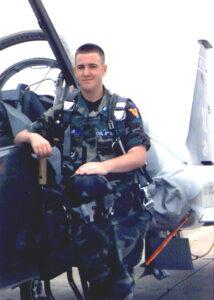
Our oldest son joined last year when he turned 12, and he’s had opportunities to go on orientation flights, attend an encampment, and earn several cadet ranks. If your child is interested in learning more about CAP or joining, it is recommended to attend 2-4 meetings to check it out before joining. Meetings are typically held weekly and focus on the four core content areas: leadership, aerospace, fitness, and character. Cadets pay annual dues, and once they receive their Achievement 1 and become a Cadet Airman, they qualify for uniform vouchers, which helps cover uniform costs. Many squadrons have uniforms to lend to cadets as well.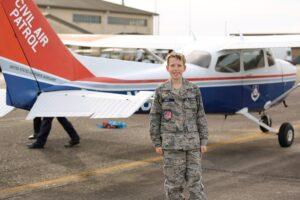
Once joining, Cadets will get access to an eServices account, complete the Cadet Welcome Course online, and get their uniforms set up. They’ll receive a New Cadet Kit which has a new Cadet guide, leadership texts, aerospace texts, a cadet tracker, and a parent guide. It has been fun to see our son excel and grow in a new outlet following in his dad’s footsteps. There have been learning curves and laughs as he figures out uniform components, physical fitness requirements, and trying aerospace experiments.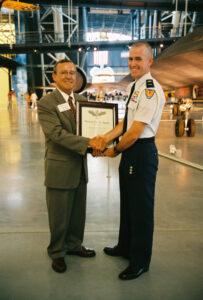
In addition to local meetings, Cadets have the opportunity to expand their horizons through different CAP activities. “Cadet activities are akin to electives at school, and CAP schedules them mostly as ‘Saturday’ and ‘school vacation’ programs. Cadets are young leaders who think seriously about their futures. They may not yet know exactly what they want to do in adult life, but they’re test-flying potential career interests.”
Some of these activities include: orientation flights, encampment, cadet honor academy, cadet competition, cadet officer school, national flight academy, cadet advisory council, etc…When my husband was a Cadet he was able to participate in the regional and national Cadet Competitions, go to Canada as part of the International Air Cadet Exchange (IACE), attend the AF Pararescure and Survival Orientation Course (PJOC), and earn the Spaatz cadet award.
While being a member of CAP doesn’t oblige your child to participate in any military service, many cadets follow that path. Some benefits for CAP cadets/senior members who choose that path include entering the Air Force as an E-3 instead of an E-1 if they have earned their Billy Mitchell Award and boot camp times are potentially reduced.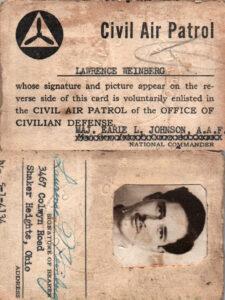
Watching my husband and son share this new bond has been very cool. My sister-in-law was a member of CAP, and my grandfather was a member of CAP. Seeing this family tradition benefit the character of our child is something I do not take lightly. If you think Civil Air Patrol might be a good fit for you or your child, be sure to check out a local squadron.


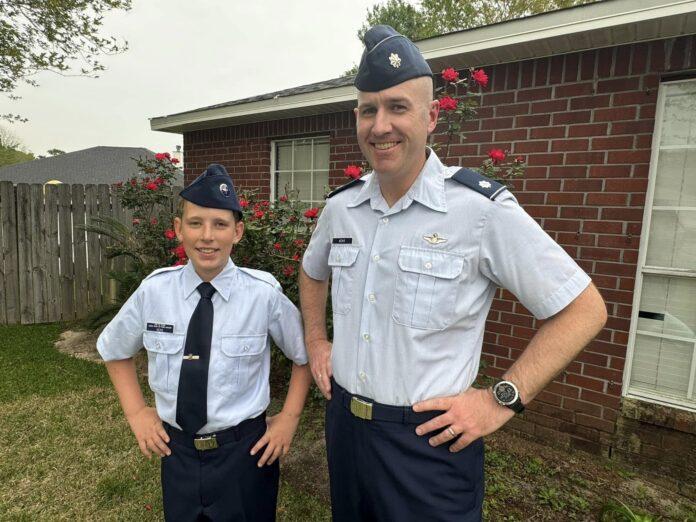









I’m a fan. The maturity and self-esteem my son and daughter gained were immeasurable.
Comments are closed.